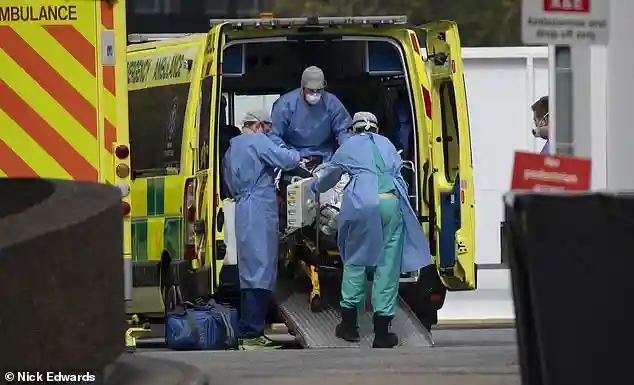When people talk about major turning points in modern British history, the pandemic always comes up as one of the most defining.
But a fresh review of those early days suggests something even more striking: many of the toughest lockdowns might never have been needed if the government had acted sooner.
This new conclusion comes from the official Covid-19 inquiry, which released a sweeping assessment of what went wrong and what could have been prevented.
Missed Chances That Could Have Saved Thousands
According to the inquiry, a national shutdown just one week earlier could have saved around 23,000 lives.
The report explains that if the first mandatory lockdown had been imposed immediately after March 16, 2020, nearly half of the deaths in England’s first wave could have been avoided.
Even more eye-opening, the March 23 lockdown might have been shorter—or unnecessary—if basic measures like social distancing and self-isolation were introduced earlier.
A Government Caught Unprepared
Baroness Hallett, chair of the inquiry, did not hold back in describing how underprepared Whitehall had been.
With the virus rapidly spreading across Asia and Europe, officials were still struggling to grasp the urgency.
She said ministers were forced into making “tough decisions” that ended up being “too little, too late.”
The lack of readiness also meant lockdowns became longer and harsher, leaving deep social and economic scars.
Children’s Lives Disrupted Most
One of the most painful findings concerns children.
The inquiry revealed that most children were never at high risk from the virus itself, yet they paid a heavy price when schools closed and daily life stopped.
The government had no real plan for the sudden shift to home learning, and in many cases, children simply were not treated as a priority.
This contributed to serious gaps in education and wellbeing.
Confusion at the Top Levels of Government
The report also outlines widespread failures among senior officials and advisers.
Boris Johnson was criticised for reacting too slowly, and several leaders across devolved governments were also faulted for hesitating at the worst possible moment.
The inquiry highlighted “misleading assurances” coming from senior civil servants, including Sir Christopher Wormald, and called out former Health Secretary Matt Hancock for overly optimistic claims that later proved untrue.
A Lost Month That Changed Everything
February 2020 was described as “a lost month” when the UK could have prepared but didn’t.
While the virus was spreading through countries like Italy and South Korea, the British government continued operating without real urgency.
Lady Hallett called this lack of action “inexcusable.”
Even Dominic Cummings, a central figure in Downing Street, admitted departments were far from sounding the alarm—some officials were even “going skiing.”
Leadership Turmoil and Mixed Messages
The inquiry went further by examining internal dynamics within No. 10.
Lady Hallett said she found strong evidence that Dominic Cummings contributed to a “toxic” atmosphere in government, often using hostile or misogynistic language and undermining colleagues.
His influence, she concluded, destabilised the environment at a critical time and complicated decision-making.
Delays, Doubts, and the Struggle Over the Second Lockdown
The report also examined the period before the second lockdown.
Throughout September and October 2020, Johnson reportedly changed his mind repeatedly about tightening restrictions.
This back-and-forth approach, the inquiry argues, gave the virus room to spread quickly again.
The Prime Minister’s optimism, distractions, and misplaced confidence in the UK’s preparedness all contributed to dangerous delays.
Scientists, Fatigue Concerns, and Early Advice
A portion of the blame was shared by key scientific advisers.
In early March 2020, SAGE members—including Sir Chris Whitty—advised against introducing measures too early, arguing that public “fatigue” could set in.
Lady Hallett pointed out that this guidance affected the government’s timing and added another layer of difficulty to an already chaotic situation.
The Vaccine Bright Spot
Despite the criticism, the report acknowledged one major success: the UK became the first country in the world to approve a Covid-19 vaccine in December 2020.
This, Lady Hallett said, was a “remarkable achievement” and changed the course of the pandemic.
However, she also noted that even as the second lockdown loomed, officials had no clear model to estimate the economic toll of shutting down the country once again.
The Bigger Picture From the Inquiry
This newly released report forms Module Two of the broader Covid-19 Inquiry, which heard from more than 160 witnesses over nine weeks.
The message running through the findings is consistent: better preparation could have saved lives, protected children, preserved the economy, and dramatically changed the nation’s experience during the pandemic.
What’s next?
The inquiry will continue releasing further modules, and the UK government is expected to respond formally to these findings.
More recommendations are coming, and the next stages will focus on how future emergencies can be handled with greater urgency and clarity.
Share on Facebook «||» Share on Twitter «||» Share on Reddit «||» Share on LinkedIn
